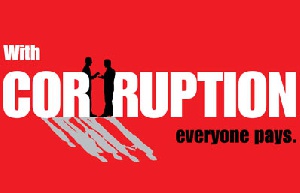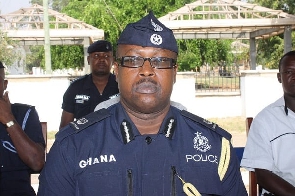Thirty percent of national budget allocated to water resources in most African countries is lost as a result of unethical practices by various officials, a water expert disclosed on Thursday in Accra.
Mr. James Leten, Regional Programme Manager for Water Integrity on Capacity Building of the Stockholm International Water Institute, made the disclosure at the ongoing maiden regional workshop. He called for drastic steps to halt the unethical practice and reverse the status quo so that funds for the Water Service Delivery in the continent were utilized for the correct purposes.
Mr Leten expressed the hope that the training workshop would assist the participants to develop tools for passing on their knowledge as “water integrity ambassadors” to strengthening transparency, accountability and participation in water governance in their respective countries.
Mr. Momodu Maligie, the Sierra Leonean Minister of Water Resources pledged to work with partners to ensure quality water service delivery for particularly communities in the urban areas in Sierra Leone. The workshop was organised by the Water Integrity Network in collaboration with Water Resource Management Unit of the Economic Community of West African States. Other partners are Global Water Partnership of West Africa and the International Union for Conservation of Nature (IUCN).
It aimed at reinforcing efforts to promote integrity and accountability at all levels of the water management and service delivery chain in Sub-Saharan African regions. It’s also expected to build the capacity of participants to effectively and efficiently develop and implement anticorruption action plans.
Ghana Integrity Initiative, the local chapter of Transparency International is hosting the programme. Information available to the Ghana News Agency indicates that in sub-Saharan Africa, 44 per cent of countries are unlikely to attain the Millennium Development Goal (MDG) target for drinking water before 2015, and 85 per cent are unlikely to achieve the sanitation target.
Estimates by the World Bank suggest that between 20 and 40 per cent of water sector finances are being lost to dishonest practices, with dire consequences that would affect the achievement of the MDGs globally.
Corruption in the water sector comes in many forms and the scope varies across types of water practices, governance structures and the perceptions and norms of actors involved. Typical examples of corruption include falsified meter readings, distorted site selection of boreholes or abstraction points for irrigation, collusion and favouritism in public procurement and nepotism in the allocation of public offices.
Business News of Friday, 12 April 2013
Source: GNA

















